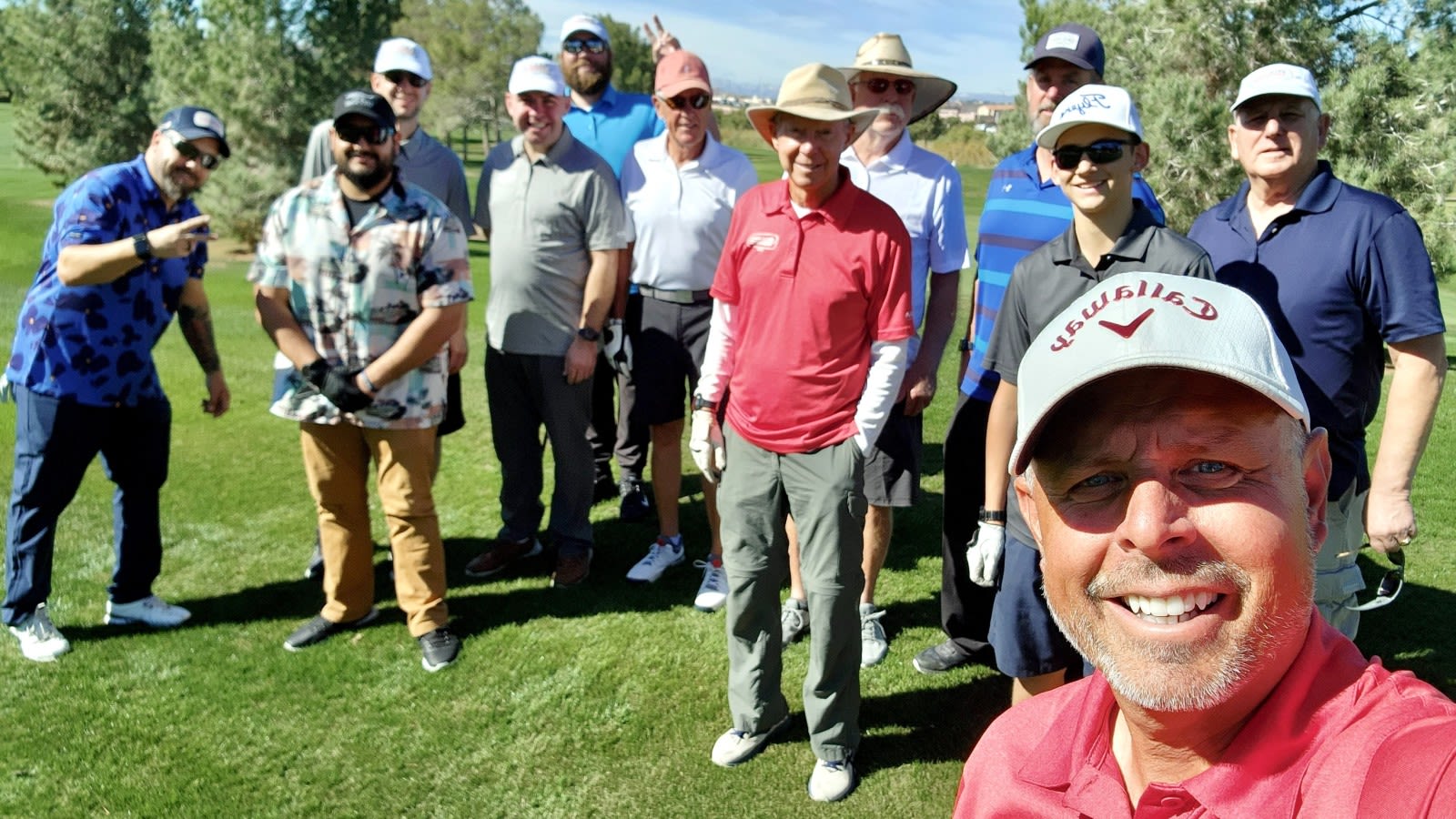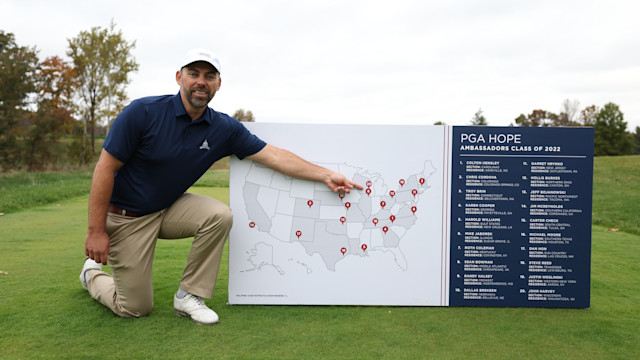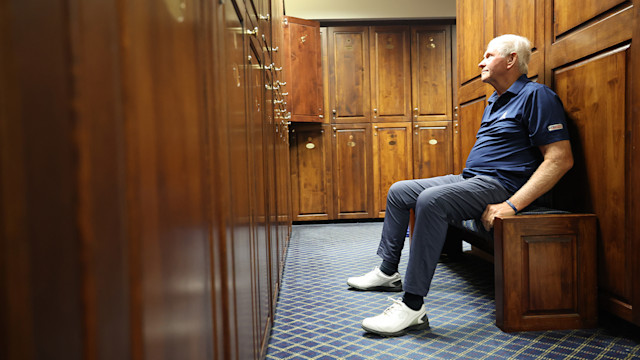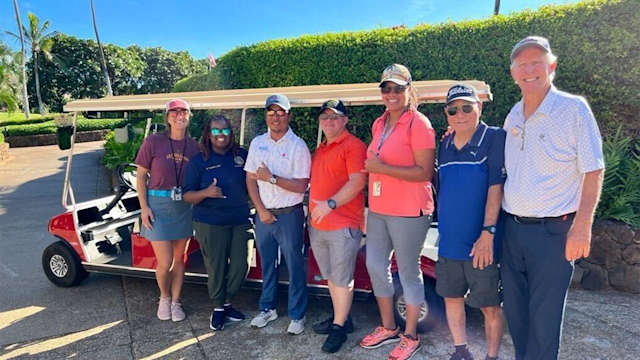Game Changers
How One PGA Professional Changed Utah's Veteran Community Through PGA HOPE
By Hayden Lewis, PGA
Published on

Rob Krieger, PGA, is using PGA HOPE to impact the Utah veteran community.
Passion comes first for PGA Professional Rob Krieger.
As the PGA Director of Instruction for Southgate Golf Course in St. George, Utah, Rob aims to create a unique experience through golf for all of his students. Growing up in Cleveland, Ohio, Rob took to golf from the ripe age of six and, since then, hasn’t thought twice about what he would do for the rest of his career. While playing for his golf team in high school, Rob even volunteered for his golf coach to help teach beginner adults the game.
“I just fell in love with figuring out why I struggled with my own game,” says Krieger. “This led to me wanting to learn more about why some players were challenged with their own games and why others weren’t – it was like a big puzzle to me that I couldn’t put down. To this day, I am still searching for the answers to help people ‘swing their swing’ as the great Arnold Palmer once put it.”
Along Krieger’s journey, he’s discovered a new path through his craft of teaching and is now dedicated to helping Veterans discover their own swing — and with it, a newfound joy — at Southgate Golf Course through the power of PGA HOPE.
PGA HOPE – Helping Our Patriots Everywhere – is the flagship military program of PGA REACH, the 501(c)(3) charitable foundation of the PGA of America. The 6-to-8-week program covers golf fundamentals to playing 9 holes, and uses the game as a form of therapy – ultimately helping Veterans and Active Duty Military enhance their physical, mental, social, and emotional well-being.
In 2019, Krieger raised his hand to help establish the first PGA HOPE program in the Utah PGA Section. Fast forward nearly four years, he now runs one of the fastest growing PGA HOPE programs in the country – and he’s just getting started.
What follows are Krieger’s thoughts on PGA HOPE and how he hopes other PGA Professionals and Veterans alike can get involved.
What does it mean to be the first PGA Professional to host a PGA HOPE program in Utah?
Krieger: It was more about doing it right and helping our Veterans. I went to our Section’s Executive Director Devin Dehlin and said, ‘Let me give this a try.’ Luckily, I was able to get PGA HOPE certified and go through the adaptive training quickly. Don’t get me wrong, there was a lot to figure out in the beginning. I didn’t know how it all was going to work, but was more than happy to take the lead if it helped pave the way for other PGA Professionals to get involved. Our Section and its board have been very supportive of PGA HOPE, and share a vision of how the program can be implemented in larger markets throughout Utah.
Why does PGA HOPE resonate with you?
Krieger: It sounds cliché but, for me, it’s all about giving back. While I didn’t serve our country like my PGA HOPE students, I benefit every day from the freedoms they fought for. From the outside looking in, it may not seem like there’s a lot on the line for these heroes when they register for PGA HOPE. I believe I can give them a gift through golf. When I teach a PGA HOPE session, it just feels like a big thank you. To give our heroes something in return and help them be active and enjoy a simple game for the rest of their lives – regardless of their ability or disability.
Some PGA Professionals may be intimidated to go through adaptive training or lead a program. What would your advice be to them?
Krieger: I believe there is nothing more satisfying than getting somebody who doesn’t fit in the square box of ‘how to swing a golf club’ to enjoy the game – that’s what being a PGA Professional is all about. When you help someone who once had the ability to see and help discover the best way for them to hit a golf ball, that becomes so gratifying. I believe PGA HOPE has made me a better teacher, and can do the same for other PGA Professionals, too.
What impact have you seen PGA HOPE have on Veterans in your program?
Krieger: I’ve learned each Veteran comes with his or her own unique story. The best part is some of them don’t even know what they are capable of until they get into PGA HOPE and start experiencing it – seeing a player come full-circle and improve is the best reward. The Veterans form camaraderie and appreciate that they even get this opportunity to learn something new – to get outside of their comfort zone. The best part is, they want to get more involved and help Veterans like themselves find PGA HOPE.
Located just between Salt Lake City and Las Vegas, St. George’s Veteran population is just over 5,000 – Nellis Air Force Base to the south and Hill Air Force Base to the north, separated by roughly 443 miles – and Krieger believes there is much to be done to serve these heroes in the southern Utah region.
“I don’t have much of a military background, nor does my family,” notes Krieger. “I’ve just always been fascinated when meeting a Veteran and hearing their story. Golf is for everyone, and I want our nation’s heroes to know that.”
To learn more about PGA HOPE, visit pgareach.org.


